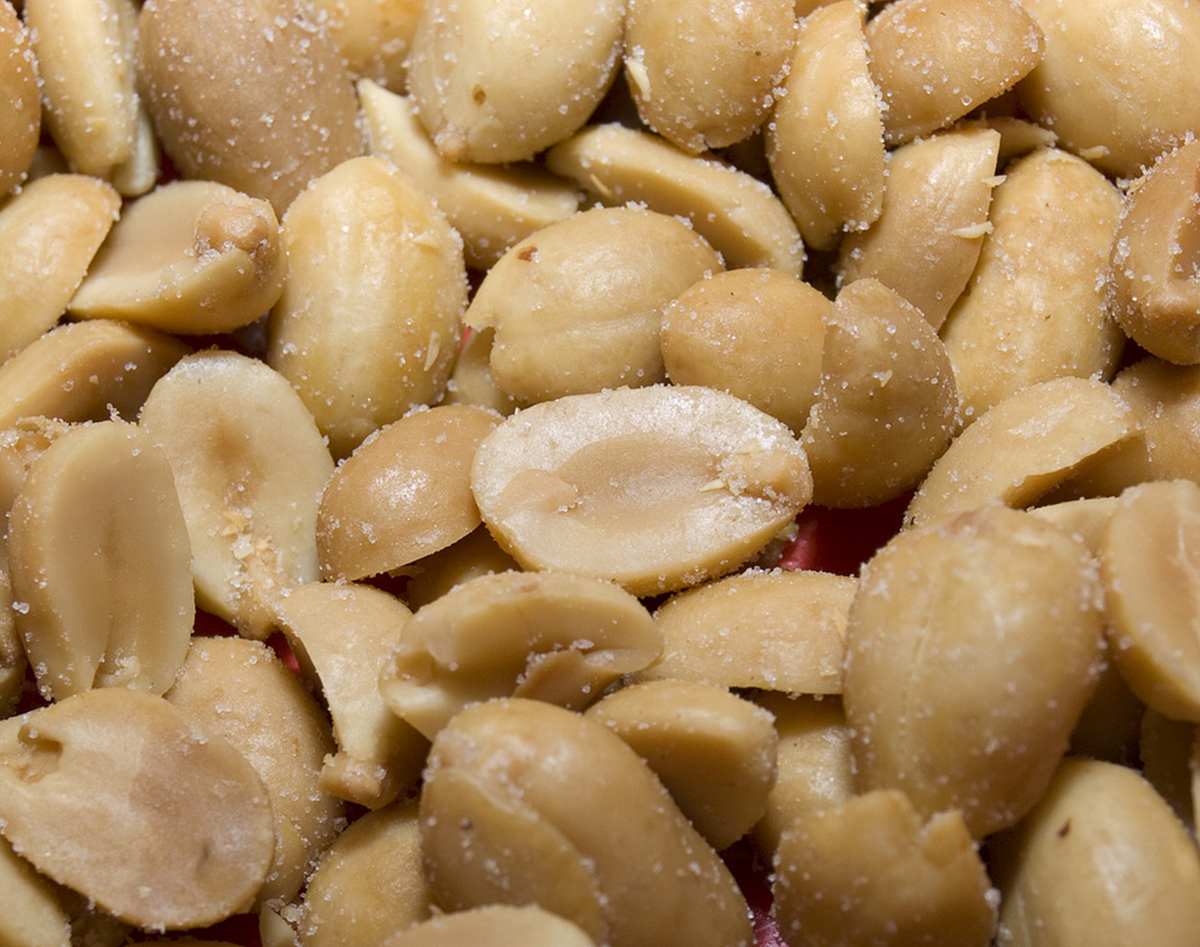Today, around three to five percent of infants around the world are allergic to peanuts or any food products containing peanuts. Their symptoms could be rather severe and include rashes, swelling, problems with breathing or even unconsciousness. The allergic reaction occurs because the immune system of an individual allergic to peanuts acts adversely to the proteins present in this product.

Also, at present, there is no treatment available for peanut allergy. Its allergic symptoms can occur even when exposed to a very small amount of peanut protein. Since peanuts are used in a wide variety of foods from chocolates to snack bars to fruit snacks, avoiding it can sometimes prove to be difficult and troublesome, especially for young children.
Pediatric experts categorized eight major foods that account for 90 percent of all allergic reactions in infants and children. They are:
- Milk
- Peanuts
- Wheat
- Fish
- Soy
- Eggs
- Tree Nuts
- Shell fish
They suggest that infants, who are at high risk of developing any of these food allergies, should be exposed to these allergens as early as six months of age (so once an infant starts solid food intake). Previously, introducing these foods at a later age was preferred so that a child’s gut and intestine gets more time to strengthen, but now experts suggest that delaying these dietary exposures to foods will not reduce any risk of developing a food allergy. It’s better to introduce such foods early and continue its consumption regularly so that a child builds tolerance towards it.
Peanut allergy has been steadily on the rise and has doubled in the last 10 years. A lot of research and study on when is the best time to introduce these allergens has been done in the past decade, and there are some studies which suggest that the earlier you introduce peanuts to your infant, the less are the chances of a child developing the peanuts intolerance.
A study called LEAP (Learning Early about Peanut Allergy) was conducted on 640 infants aged between 4 to 11 months who already had an egg allergy or eczema and were considered to be at high risk of developing peanut allergy. These infants underwent a mild skin prick test for peanut allergy. Those who were found to be allergic were excluded from the study as eating peanuts going forward may be disastrous for them since their bodies were already rolling out antibodies to the peanut protein. Approximately 530 remaining infants, who were tested negative for this allergy, were involved for further study.
See Also: Food Allergies Make You Broke
These infants were divided into two groups. Half of the infants were given peanut containing foods (direct peanuts were avoided because of the risk of choking, instead peanut butter or small amount of peanut protein was used), three to four times a week, and the other half of children had to avoid peanuts till the age of five years. Parents of children from both groups were asked to fill the food questionnaire during the study.
Early Exposure Of Infants To Potential Allergens Prevents Development Of Allergies
Around the children’s fifth birthday, the results showed that only three percent of the group that ate food items containing peanuts developed allergic reaction to it at five year mark and around 17 percent of the group that avoided peanuts ended up being allergic to it. The study clearly showed that there was more than an 80 percent reduction in the risk of peanut allergy, if peanut-containing food is introduced early in infancy.

An earlier survey conducted in Israel in 2008 showed that Israeli children who were introduced to peanuts as early as at 7-8 months of age were at low risk of developing the peanut allergy as compare to their counterparts who lived in other countries where parents wait till the age of 5-6 before introducing such foods to their kids.
Can Other Food Allergies Be Prevented By Early Exposure?
The results of these studies are rather impressive. The obvious question which comes to mind is whether the same approach can be used to prevent other food allergies. The second question is whether the allergy preventing effect persists even if the peanuts consumption is dropped for some time.
The results of another study, published in 2013, on the exposure of infants to eggs also saw hints that babies who ate eggs in the first year were less likely to become allergic to them in the later life. The same team is now conducted an extensive study of this effect on around 820 infants.
Can Immune System Of Allergy Sufferers Be Retrained?
Recently, the American Academy of Allergy, Asthma and Immunology published the findings of a study conducted on 221 adult and pediatric participants. The participants were given either a skin patch delivering peanut protein or a placebo patch. After a year, it was observed that participants who were on the highest dose of peanut protein or those who got the highest dose patch were able to tolerate 10 times more peanut protein than they were able to do at the start of the study. This study generated hope that the immune system of the allergy sufferers can be retrained thus reducing the risks associated with accidental exposure to the peanut-containing products.
In an earlier experiment, the researchers gave a group of 30 allergic children the increasing doses of peanut protein over a period of 18 months. After the trial, it was found that 80 percent of the children could eat peanuts without any adverse effect.
A word of caution should be said, however: the findings described here should not be treated as a medical advice. Parents of young children and infants who already have an egg allergy or eczema should consult a specialist, pediatrician or an allergist before feeding their kids with peanut products.
See Also: Food Allergies Linked To Pesticides In Tap Water
Scientists are also working on developing genetically altered plants which can produce non-allergy causing peanuts. This is yet another way of solving this potentially serious medical problem.
- Al-Muhsen S, Clarke A, Kagan R
- Peanut Allergy: an overview, Canadian Medical Journal 2003
- 168 (10): 1279 – 1285
- Du Toit G, Katz Y, Sasieni P, et al. Early consumption of peanuts in infancy is associated with a low prevalence of peanut allergy. J Allergy Clin Immunol 2008
- 122:984-991
- Fox DE, Lack G. Peanut allergy. Lancet 1998
- 352:741-741
- Sicherer SH, Munoz-Furlong A, Godbold JH, Sampson HA. US prevalence of self-reported peanut, tree nut, and sesame allergy: 11-year follow-up. J Allergy Clin Immunol 2010
- 125:1322-1326
- Sampson HA. Peanut allergy. N Engl J Med 2002
- 346:1294-1299
- Du Toit G, Roberts G, Sayre PH, et al. Randomized trial of peanut consumption in infants at risk for peanut allergy. N Engl J Med 2015
- 372:803-813.Photo courtesy of EuroMagic via Flickr: www.flickr.com/photos/euromagic/2351628831
- Photo courtesy of alamosbasement via Flickr: www.flickr.com/photos/alamosbasement/3550129135


Your thoughts on this